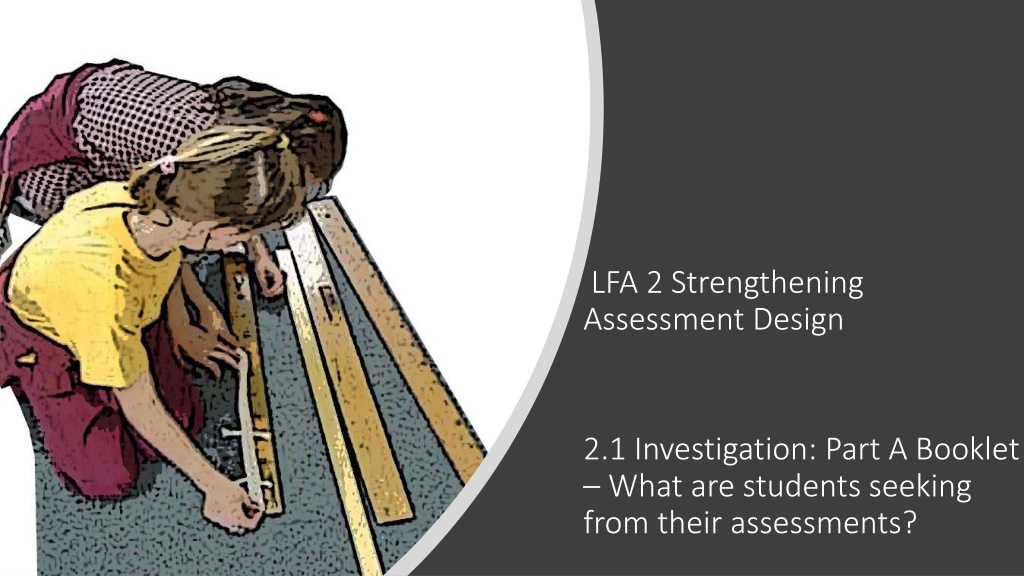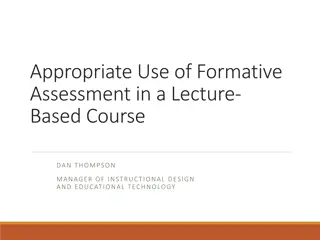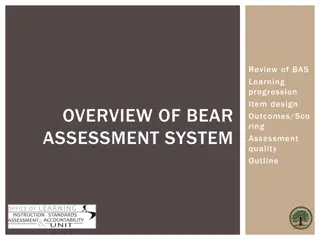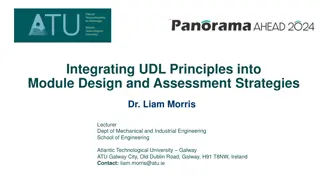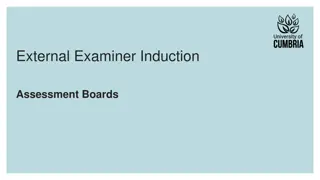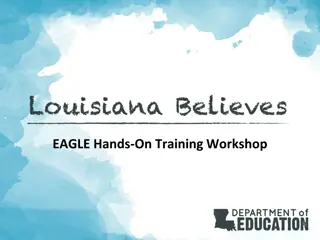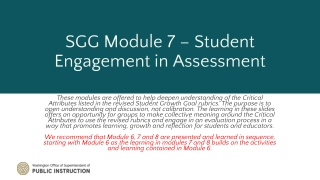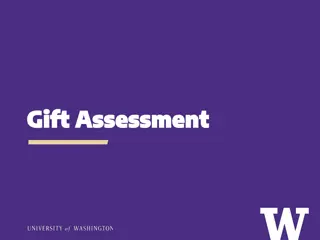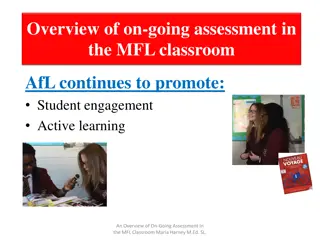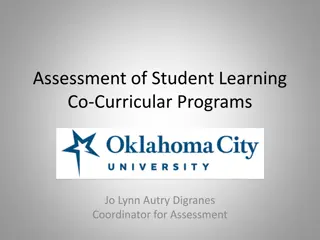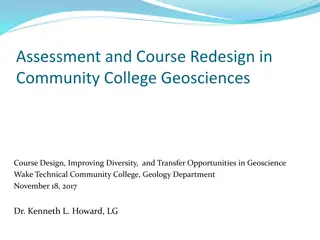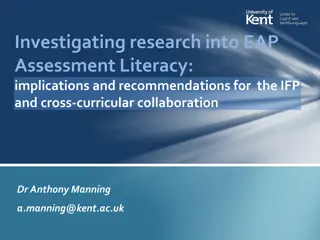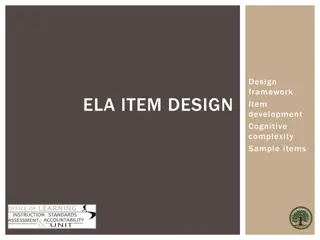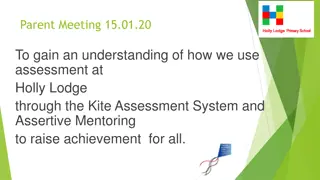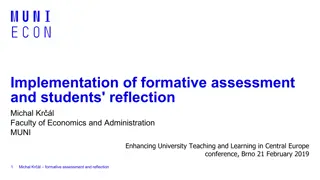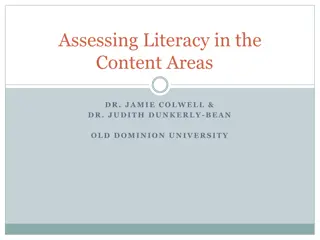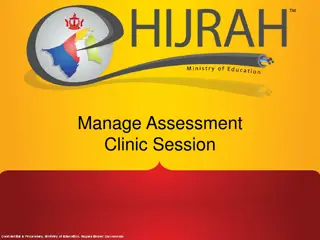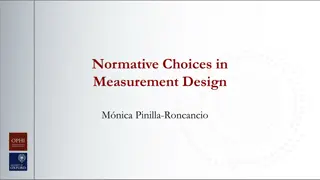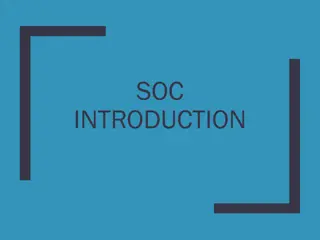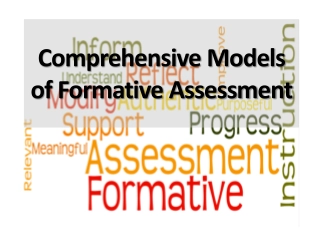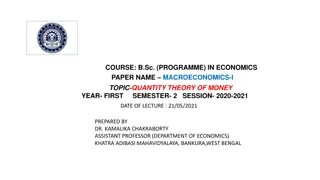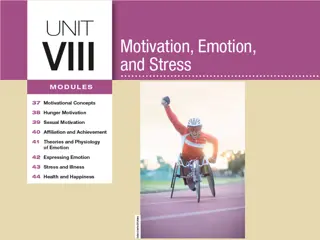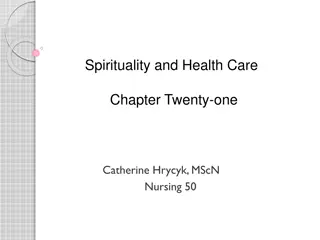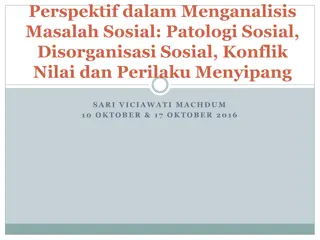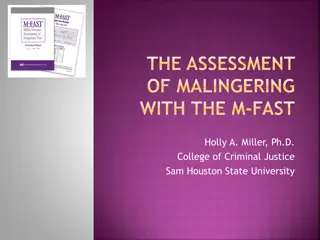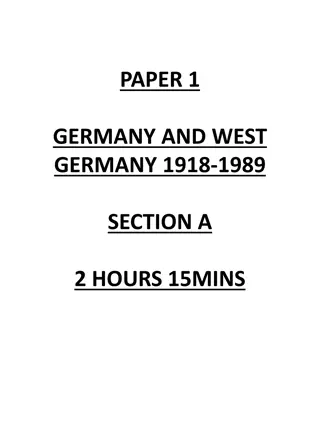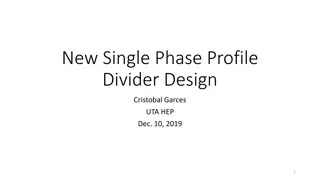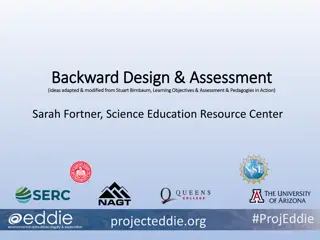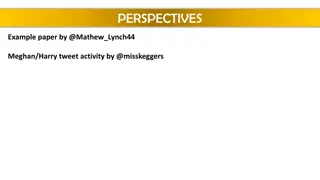Enhancing Student Assessment Design: Understanding Student Perspectives
Explore a comprehensive investigation booklet designed to understand what students seek from their assessments. The booklet covers various aspects such as the investigation team setup, guides for learning conversations, and templates for analysis. Teachers play a crucial role in facilitating student focus groups and capturing valuable insights to improve assessment practices.
- Student assessment
- Investigation booklet
- Learning conversation guide
- Teacher leaders
- Assessment design
Download Presentation

Please find below an Image/Link to download the presentation.
The content on the website is provided AS IS for your information and personal use only. It may not be sold, licensed, or shared on other websites without obtaining consent from the author. Download presentation by click this link. If you encounter any issues during the download, it is possible that the publisher has removed the file from their server.
E N D
Presentation Transcript
LFA 2 Strengthening Assessment Design 2.1 Investigation: Part A Booklet What are students seeking from their assessments?
LFA 2.1 Part A - Contents Contents of LFA2 2.1 Investigation: Part A Booklet Contents of LFA2 2.1 Investigation: Part A Booklet 1. An overview of LFA 2 Investigation: Part A .. page 3 2. Guides and scaffolds to support each part of the investigation A Learning Conversation Guide that can be adapted to suit the students involved page 4 A note-taking scaffold for Focus Group Recorders .. page 5 An analysis and synthesis template to document what has been learned from each Focus Group Learning Conversation . page 7 A template to collate the findings from each Learning Conversation, with broader analysis across all findings page 8 2
LFA 2.1 Part A - Overview Overview of LFA2 Investigation: Part A Overview of LFA2 Investigation: Part A 1. 1. The Investigation Team The Investigation Team (1 school leadership team member, 3-5 teacher leaders and 6-10 teachers)prepare for the investigation. This means: Becoming familiar with the guides and scaffolds in this booklet and adapting language to better suit local contexts where appropriate. Ensure everyone is clear about the investigation process. Pairing teachers (a conversation lead and a recorder) to conduct and guide the Student Focus Group to share current experiences of assessment in the school. Identifying a diverse group of students from different year levels/cohorts to make up the Student Focus Group. 2. 2. Teacher leaders Teacher leaders follow up with their teachers to confirm the students who will participate in the Learning Conversation Focus Group. They provide support for the logistics, such as, teacher release/cover; student release; scheduling time to undertake the conversations and the follow up sense-making and small team analysis. 3. 3. Teachers Teachers can choose students from either class, regardless of who is the Conversation Lead. Teachers prepare by thinking about follow-up questions to tease out responses beyond what students initially offer in response to the questions on p.4. The recorder can contribute to the questioning or clarifying as they notice something that could be further pursued. 4. 4. Teacher Leaders Teacher Leaders lead the first synthesis and analysis conversation with their team of two teachers, using the scaffold on p.5 to make sense of what has been discovered. 5. 5. The Investigation Team The Investigation Team reconvene and discuss findings in light of the Student Focus Group discussions recording this on p.6. 3
LFA 2.1 Part A Learning Conversation Guide LFA 2 Investigation Part A LFA 2 Investigation Part A Learning Conversation Guide Student Focus Group Student Focus Group - - Learning Conversation Guide The following questions are offered as a guide feel free to adapt them to better suit the age of the students in your focus group and the needs of your local context: 1. What would you like to know more about in relation to your learning progress? 2. What has helped you the most to understand the progress you are making? 3. What suggestions do you have for getting better at knowing how you are going in your learning? 4. When you think about the kinds of assessments you do, which ones help you to reveal what you know, understand and can do more accurately? Jot down notes during (or straight after) the conversation. Try to capture as accurately as possible in the voice of your research partners. You may wish to record this conversation on your phone or other device as a back-up or to revisit later. You will have an opportunity to share and collaboratively analyse this with colleagues as part of the research process. 4
LFA 2.1 Part A Learning Conversation Notes Note Taking Template for LFA 2 Investigation Part A Note Taking Template for LFA 2 Investigation Part A Learning Conversation with a Student Focus Group Learning Conversation with a Student Focus Group 1. What did students say they would like to know more about in relation to their learning progress 2. What helped them the most to understand the progress they were making was 3. Their suggestions for getting better at knowing how they were going in their learning were 4. The types of assessments they thought helped them to reveal more accurately what they know, understand and can do were 5
LFA 2.1 Part A Synthesis and Analysis LFA 2 Investigation Part A LFA 2 Investigation Part A - - Synthesis and Analysis Scaffold for Individual Focus Group Conversations Synthesis and Analysis Scaffold for Individual Focus Group Conversations Key ideas /themes that emerged? What is valued by students or considered to be helpful in our approach to assessment? What is not valued or needs attention / a rethink? What did you notice about how students positioned themselves as active in seeking to work out how they are going or reliant on others to let them know? What do you think this means for our school community? Teacher Leaders facilitate this process with the teachers from their team who engaged in the Learning Conversations with students. 7
LFA 2.1 Part A Synthesis and Analysis LFA 2 Investigation Part A: Synthesis and Analysis Scaffold for Whole Investigation Team LFA 2 Investigation Part A: Synthesis and Analysis Scaffold for Whole Investigation Team Key ideas /themes that emerged? What is valued by students or considered to be helpful in our approach to assessment? What is not valued or needs attention / a rethink? What did you notice about how students positioned themselves as active in seeking to work out how they are going or reliant on others to let them know? What do you think this means for our school community? The Investigation Lead facilitates this process with the whole Investigation Team of teachers and teacher leaders. This is the documentation that will be taken to LFA 4. 8
